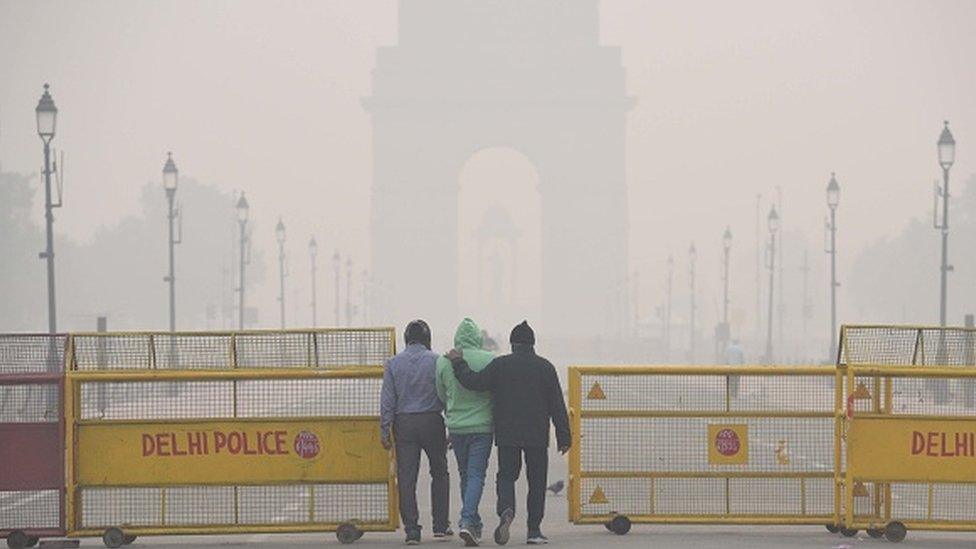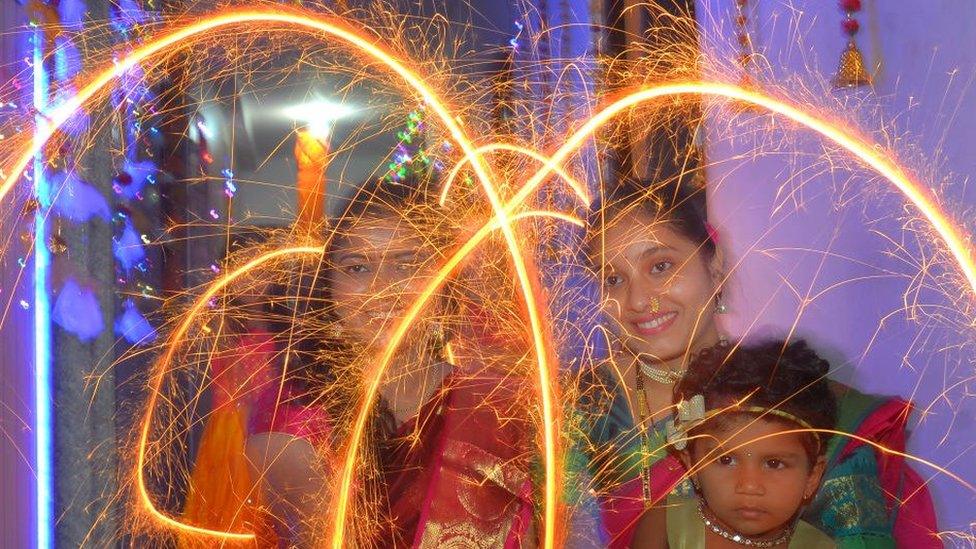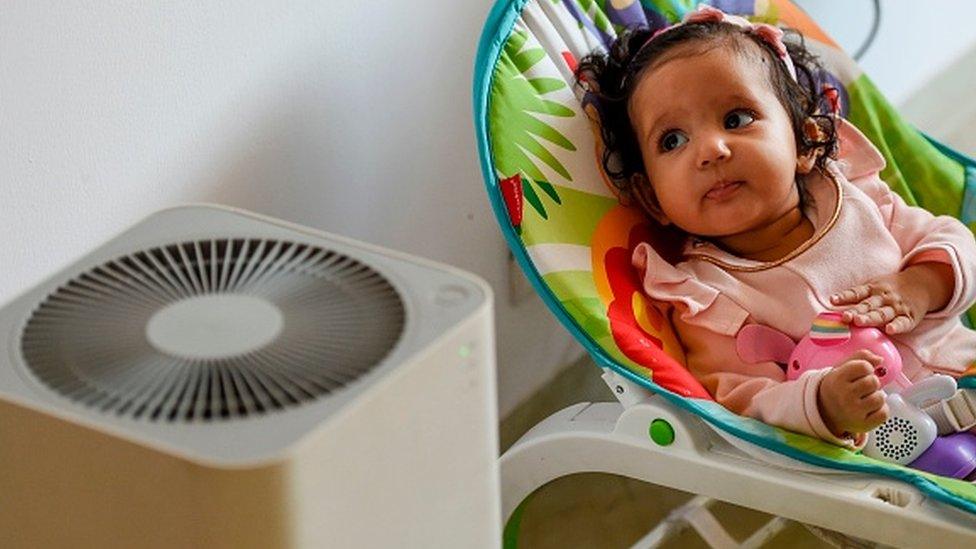Delhi air: Leaders trade barbs as India capital pollution worsens
- Published

Air quality levels are severe across most parts of Delhi
Air quality in India's capital, Delhi, has plunged to hazardous levels as politicians blame each other.
Members of the Aam Aadmi Party (AAP), which governs Delhi, say that the federal government has rejected its solutions.
But the federal environment minister - who is from the Bharatiya Janata Party (BJP) - has blamed the AAP for turning "Delhi into a gas chamber".
Delhi is one of the world's most polluted cities through the year.
This is due to a mix of factors including dust, weather patterns, traffic fumes and industry emissions.
But its air turns especially toxic in winter when farmers in neighbouring states burn crop stubble.
On Thursday morning, a toxic haze was covering most parts of the city. The government's air quality monitors showed that concentration of PM2.5 - dangerous tiny pollutants in the air - had crossed 500 in many places.
According to the air quality index (AQI), a figure between zero and 50 is considered "good", and between 51 and 100 is "satisfactory". A figure higher than 500 is considered "severe".
Watch: 'We are forced to pray in a highly polluted river'
As concerns over pollution grew on Wednesday, the Delhi government issued an appeal, external to people in the city to work from home and carpool to reduce traffic fumes. It has also banned construction temporarily.
The National Commission for Protection of Child Rights has also advised the government to shut schools until air quality improves.
The capital usually witnesses a spike in air pollution after the Diwali festival - often marked by bursting firecrackers - every year. But this year, favourable weather conditions helped keep air quality at relatively better levels.
The dip in air quality this week has been fuelled by an increase in farm fires in the neighbouring state of Punjab.
Farmers see these fires as a fast and cheap method of clearing fields to plant winter crops.
"I know the burning causes pollution. I'm the first victim of this, and then it affects my village," Surinder Singh, a farmer in Bathinda district, told BBC Punjabi.
But he added that they had no other option unless the government compensated them fairly for the expense of removing stubble.
More than 3,600 farm fires were reported in Punjab, external on Wednesday, according to The Indian Agricultural Research Institute (IARI) - the highest this year so far.
Government data showed that smoke from this contributed up to 32% of the PM 2.5 pollutants in Delhi's air.
It also triggered a political blame game. Federal environment minister Bhupender Yadav accused the AAP, external - which is also in power in Punjab - of not properly utilising funds allocated for machines to clear crop residue.
"There is no doubt over who has turned Delhi into a gas chamber," he tweeted.
Meanwhile, Delhi chief minister Arvind Kejriwal said the federal government had rejected its proposal to tackle the farm fires.
Mr Kejriwal claimed that the high pollution level was a problem for all northern Indian states.
"Why is the PM not calling a meeting of all states on this?" he asked reporters on Wednesday, external. "There is only politics going on about this, no one is talking about the solution."

Read more India stories from the BBC:

Related topics
- Published25 October 2022

- Published9 December 2021
